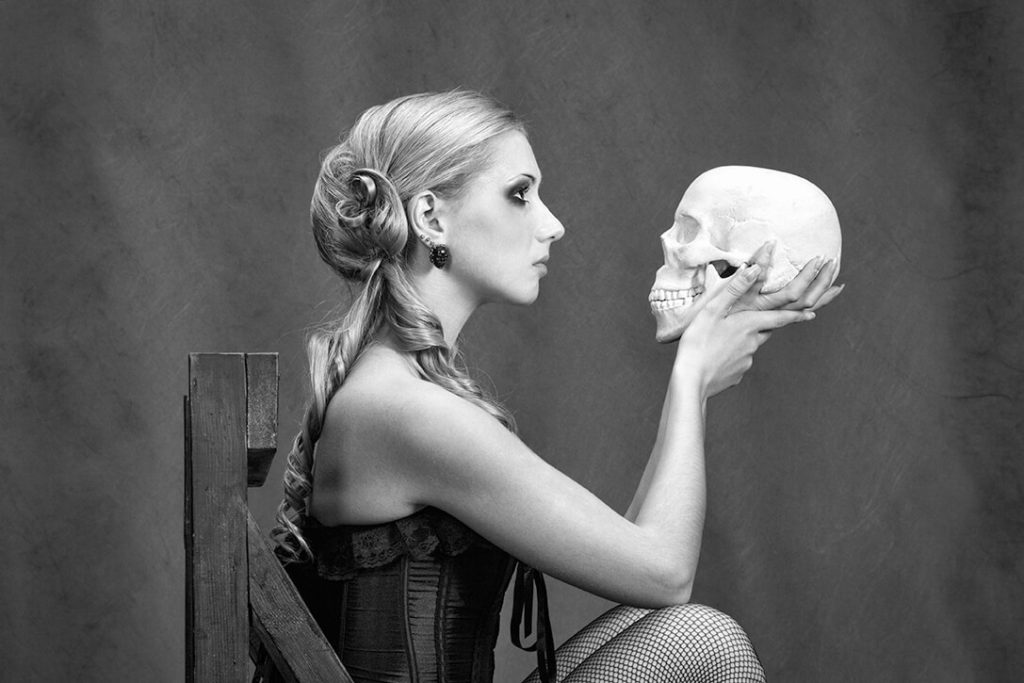If Oscar nominated movies are a glimpse into the Zeitgeist of the times, then this year’s crop of nominees can offer us some hope that people are finally ready to see beneath the surface, to turn a Spotlight on the lie at the heart of the system and to take a Big Short on the fraud and stupidity of conventional thinking.
But the nominated film that speaks most closely to the core of our world’s problems on a microcosmic, personal level is Room, whose lead won the Oscar for Best Actress. Despite its flawed ending, it is as apt a metaphor for the imprint as any seen recently in film.
Based on an acclaimed book, the story, as it is gradually revealed, involves a young mother ironically named Joy and her five-year-old son Jack who are held hostage in a tiny heavily secured garden shed by a man known only as “Old Nick” and whom we see mainly through Jack’s shuttered vantage point in the cupboard when Nick visits at night for sexual congress with his mother. We learn that Joy was kidnapped at the age of 17 by Old Nick and that Jack is the product of rape by Old Nick and has never known the world outside of the one room they live in. Eventually, Joy devises a plan to fake Jack’s death so that when Old Nick takes the body rolled in a rug to bury, Jack can escape and secure help for them. The plan is successful and the rest of the movie deals with their adjustment to freedom and their process of healing from the trauma of their captivity.
Beyond the obvious rhyme, I believe there are many reasons to view Room as a metaphor for the experience of being in the womb. The claustrophobic lack of space and the fact that both mother and child are locked into the situation are reminiscent of gestation. The absence of love or kindness in the relationship between Joy and Old Nick is not so dissimilar to many bad marriages. Old Nick brings home the bacon and Joy and Jack are completely dependent on him to provide food and the essentials for life. He is not beyond reminding them of this whenever he is angry. He has no relationship with his child because Joy will not even let him see Jack. Jack is hers alone, her compensation for the dismal and abusive terms of her captivity. Although this situation is portrayed in the extreme and we like to think that there are fewer of these kinds of relationships in the modern world due to the empowerment of women, this picture of domestic life is not so far from what women have had to endure over the centuries.
Joy’s despair is palpable in the film. She alternates between moments of love for her child and irritation with his needs, his desires, and his questions, all of which serve to complicate and magnify her powerless position. This aspect of the film is a powerful portrayal of how a mother cannot protect her child from her own state of mind. Even though she tries to keep it in the background and put a positive face on for his benefit her anguish calls forth his grief, intransigence and temper tantrums in response.. There is no boundary between the two of them.
On a deeper level, and key to our purposes in writing about the film, Old Nick can be seen as symbol of the imprint that holds us all captive. It is old indeed, an accumulation of untold centuries of suffering and abuse experienced by women and passed automatically and unconsciously to their children in the womb. Old Nick has clearly been formed by the brutal unfeeling dominance of the masculine paradigm that sanctions the use of force and violence to take what one wants. This paradigm has held civilization hostage for thousands of years and produced the imbalance between masculine and feminine that continues to create the kind of relationships between men and women depicted in the film. When Joy returns to her mother’s and stepfather’s home after her escape we see that she was herself the product of a failed union. When her father makes his appearance, having flown in from out of town at the news of her escape, he cannot even look at Jack, the product of his daughter’s rape. His masculine pride of dominance and ownership trumps the love he should be feeling for his daughter and grandson.
Like the imprint, nothing is known about Old Nick. We see only brief glimpses of him on camera, we know him mainly through his effect on Joy, the misery he creates in her. In this way, the film portrays accurately how little anyone knows about the imprint currently, while we can clearly see its effects in the suffering of the world all around us.
The ending is false in that the escape from Old Nick does not happen in real life. One has to do more than fake one’s death in order to escape the imprint. It is with us until our actual deaths unless we can understand what it is, how it operates, and how to cleanse ourselves of it. It cannot be tricked like Old Nick and doesn’t lose heart and let go as easily as he does when Jack makes a run for it. Unlike Old Nick, the imprint is not afraid because, thus far, no one, with the exception of Dr. Bail and those few of us who have experienced or practiced his work, has seen it. It has been ruling the world for thousands of years. But like Old Nick the imprint ultimately fears exposure, as can be attested to by anyone who has tried to probe its existence. When one dares to do this, a considerable arsenal of weapons emerges in the unconscious and the battle for one’s life will ensue.
To its credit, the film does realistically show how Joy continues to suffer even after escaping Room. Her rage, depression and immaturity prevent her from seeing how her trauma has affected and continues to affect her son. In the hospital where they are assessed after escaping Room, the doctor advises her to keep Jack under observation for a while longer. Joy declines this in her eagerness to return home and angrily barks at the doctor, “Nothing happened to Jack!” Once they return home she is almost completely consumed by her own rage and depression, pushing Jack and her mother away. At one point she admits to her mother, “I’m supposed to be happy. I don’t know what’s wrong with me.”
Joy decides to participate in a highly paid interview for television about her ordeal. About what it was like when Jack came, Joy says, “he was so beautiful, I just knew I had to keep him safe.” The interviewer asks her if she ever considered asking Old Nick to take Jack away to a hospital and Joy angrily asks, “Why would I do that?” When the interviewer says, “So that Jack could be free”, Joy quickly responds, “but he had me.” The interview is effectively over when the interviewer asks one last question, “But was that the best thing for Jack?” A suicide attempt is Joy’s next act and Jack is left to find her on the bathroom floor.
Jack, although angry at Joy for her suicide attempt, appears to get better with his mother away at the hospital. But he also tells his grandmother that he misses Room because his mother was always there. He decides to cut off his long hair (he calls it his “strong”) in order to send it to his mother in the hospital. This is a poignant depiction of a child’s need to sacrifice his “strong” to help his mother carry the emotional burden of the imprint. When she returns from the hospital, supposedly mysteriously recovered, she tells Jack that he saved her again. When she confesses to Jack that she’s afraid she hasn’t been a very good mother to him, in all the honesty of childhood, he doesn’t dispute her, he simply says, “But you’re Ma.”
The final scene has Joy and Jack revisiting Room at Jack’s request. Accurately, such a return to the scene of the crime is necessary on the journey to free oneself. But it’s an internal journey that can’t be accomplished without the close attention to and understanding of one’s dreams that only an in-depth analysis based on Dr. Bail’s imprint theory can provide.
It is one thing, and the least of it, to escape Room or Womb physically. It is altogether another thing to remove the residue or imprint of the terrible feelings we all endured during that trying cohabitation. The film’s strength is its vivid depiction of the emotional realities of life in the womb, a much needed, more honest picture of that time in all of our lives, a period that we have a strong tendency to idealize. But after Joy and Jack leave Room, the film looses its way. In trying to construct an ending that avoids leaving the audience devastated, the writers tack on vague abstractions of the rehabilitative process that are reflective of the current state institutional psychology in all its superficial without-a-clue-ness. Clearly the writer and director are in territory they do not fathom, the unconscious, and they find no direction from psychology because understanding of the unconscious and the imprint is sadly absent there as well.
The film I want to see is one that goes far beyond where Room stops and could show the long term effects that being captive to Old Nick has in store for Joy and Jack. Even though Jack looks like he’s adapting fairly well to the world outside Room, I am certain his way will not be smooth. Nothing in this film would allow me to believe that Joy has found real freedom from Old Nick either. A truly revolutionary film would begin where this one leaves off and illustrate accurately what a careful analysis based on a deep understanding of the imprint looks like and how it can meaningfully free the survivors of Womb.
Copyright, Judith V. Parker, Ph.D. 2016





About The Author: Judith Parker
Dr. Judith Parker has spent her career studying dreams and the deep truths they can, with accurate understanding, provide to us all. She has been actively involved in the study and practice of the theories of Dr. Bernard Bail over the past two decades, most notably his discovery of the mother’s imprint, as described in his book The Mother’s Signature.
More posts by Judith Parker